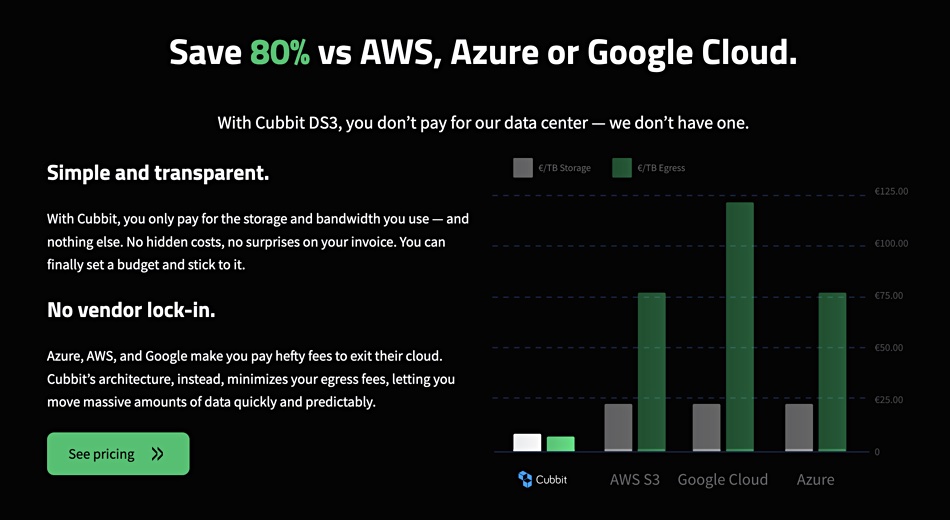Cubbit uses Swarm technology – a term also used by the DataCore-acquired Caringo – for its object storage technology.
We asked the startup more about this, as well as some questions about how it relates to Web3 decentralized storage providers such as StorJ and Filecoin (Protocol Labs).
Web3 storage typically uses cryptocurrency and blockchain tech to present a file and object storage resource that’s distributed across a network of individual providers, using their spare capacity, that are presented as a single storage repository. Their stored data, fragments of a file or object, is validated with blockchains, and they are paid for storing data and making capacity available in cryptocurrencies.

A Q &A with Cubbit co-CEO and co-founder Alessandro Cillario about its DS3 product follows.
Blocks & Files: Is Cubbit a Web3 distributed storage supplier?
Alessandro Cillario: Cubbit’s solution is not fully decentralized. There is a centralized component, the Coordinator, which manages metadata, S3 gateways, and Swarms (clusters of storage nodes). This gives the user better control and is easier to manage.
Blocks & Files: How does Cubbit distinguish its offering from that of Storj, which also uses existing datacenter resources for its distributed storage?
Alessandro Cillario: Some of the basic concepts are similar, but our solution is much more sophisticated in one critical aspect.
Cubbit enables data sovereignty for users, through utilizing public or private Swarms. Public Swarms can be considered as ‘regions’, clusters of capacity nodes concentrated in a single ‘country’. Concurrently, we can build private Swarms. This empowers users with full control over their infrastructure and costs, while at the same time taking advantage of a cloud storage service.
There is much more than that, and more details will be revealed in October.
Blocks & Files: Does Cubbit use blockchain technology?
Alessandro Cillario: No, because for our product and architecture, blockchain wouldn’t really bring any major advantages.
Blocks & Files: How does Cubbit differentiate itself from Web3 storage suppliers such as Filecoin?
Alessandro Cillario: While most Web3 providers have a good price point for raw storage, Web3 is lacking on the performance side. In addition, enterprise solutions require S3 to operate, which results in an even slower object store. The alternative is to use native APIs and risk vendor lock-in. No matter how its use is intended, the number of potential use cases is very limited. Today, enterprises want more flexibility and control.
Flexibility, edge, multi-cloud, end-to-end control over cost, infrastructure, and data are Cubbit’s differentiators, and this is true also when we compare our solutions against traditional on-premises and cloud object stores.

Blocks & Files: What is Cubbit’s performance when storing files and when retrieving files?
Alessandro Cillario: Our customers report good performance from the public gateways Cubbit provides, in line with cloud storage services that boast speed of access as one of their primary capabilities.
Blocks & Files: How does Cubbit’s Swarm technology relate to DataCore’s Caringo-based Swarm software?
Alessandro Cillario: The name could create confusion, but the technology is entirely different. Cubbit is a decentralized storage solution, with nodes that can be dispersed over large distances. Traditional object storage solutions, like Datacore Swarm, are scale-out clusters that can work only when the nodes are very close to each other.
In the end, our customers love Cubbit DS3 because we give them the flexibility of a cloud solution with all the control they need over data, infrastructure and costs.
There’s more on Cubbit and its customers here.








